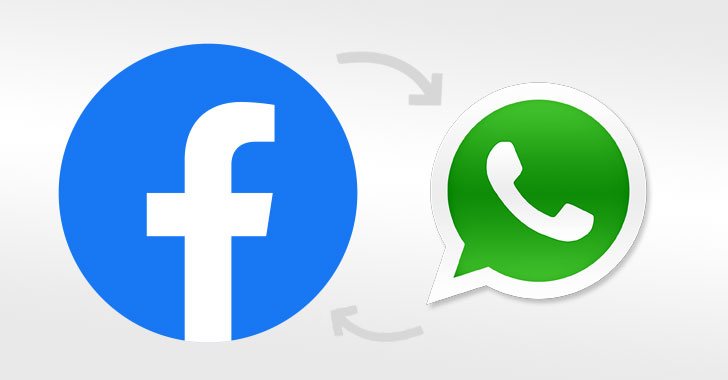We all have encountered a scenario where we Googled something, like a brand or a specific product and minutes later when scrolling your Facebook feed you find an advert of the same product or brand. But majority never even notice the “coincidence”. Tell you something, this is Targeted Advertising at work right there.
By sharing data with multiple collecting companies, majority of who we do not even know, websites are able to relay specific information about their visitors to other website, and social media companies that use their services.
One big player is Facebook.
This post comes in light of the new terms and conditions that FaceBook intends to implement come February 8, 2021.
If you don’t find that creepy let me illustrate some other scenario: A blogger like me, Carl Thomson (https://www.carlthompson.co.uk) was discussing with a friend the benefits of sugar free Ice Cream over WhatsApp. There is nothing insecure about that, right? WhatsApp says their chats are end-to-end encrypted anyways, true? Well, doesn’t seem so. Here is why… The friend had never heard of the Ice Cream they were discussing before that. But as if by magic, the said Ice Cream was all over her social media banners soo afterwards.
A coincidence? Pull the other one Zuckerberg, it’s got bells on it. Facebook own both Instagram and WhatsApp, so it’s not surprising that adverts are interlinked and cross pollinate through different platforms, but aren’t WhatsApp conversations encrypted?
So how exactly are Facebook listening?
Check this article from Lifehackers written by Nick Douglas, a very interesting read.
“Facebook’s mobile app theoretically could listen in on you, at least while you have it open. It even has a public feature that will try to recognize any audio in the background, like music or TV—but only while you’re entering a status update, and only if you’ve opted in. Facebook says this feature is never used for advertising.”
Imagine that when you are posting a status update, Facebook might capture what you are talking about in the background. Doesn’t scare you still?
Facebook collects a plethora of personal and non-personal data about anyone who uses it. Let me list some here:
- Every time you log in to Facebook, where you logged in from, what time, and from what device
- All the applications you’ve ever had connected to your Facebook account, so they can guess I’m interested in politics and web and graphic design, that I was single between X and Y period with the installation of Tinder, and I got a HTC phone in November
- When you like something, they assume you like that topic, and they save it. (How many likes have you done since joining the app?)
- Somewhat pointlessly, they also store all the stickers you’ve ever sent on Facebook
- Your language based on the languages you use on Facebook.
- Places you’ve visited, where you’ve eaten, etc. based on where you log into Facebook or if you’ve ever checked-in at a location.
- Type of family (e.g., family-based household).
- Who your friends and family are and how many you have.
- If you’ve deleted friends, information about all past friends and family.
- Employer and job title including past employers with an idea of income level.
- Phone number with the potential of knowing past phone numbers.
- Your e-mail address with any past e-mail addresses that may have been used since you created the Facebook account. Your account may also include any other account linked related e-mail addresses.
- Credit card information if you’ve made purchases on Facebook.
- Schools attended and level of education
..and more.
Take a look at the screenshots below from an internet user. The first is a WhatsApp chat between him and his brother about finding contact about a former friend. Minutes later on Facebook, the “lost” friend is suggested on Facebook. Still believing in coincidences?
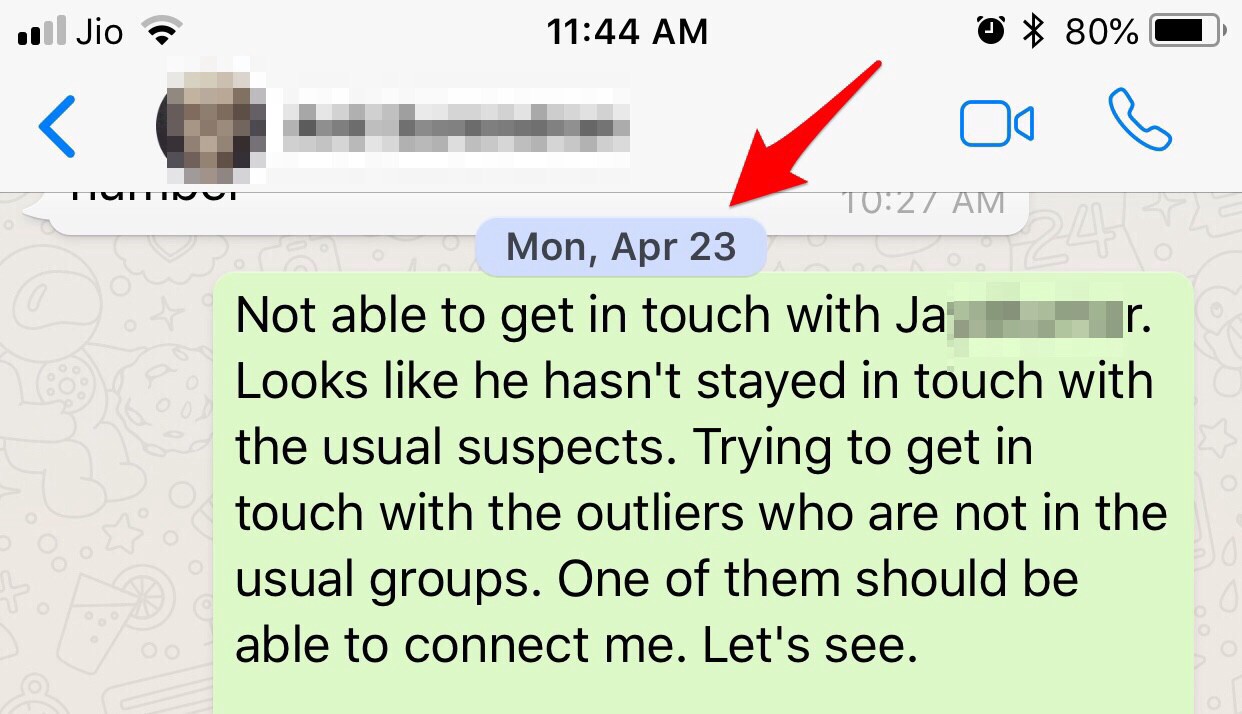
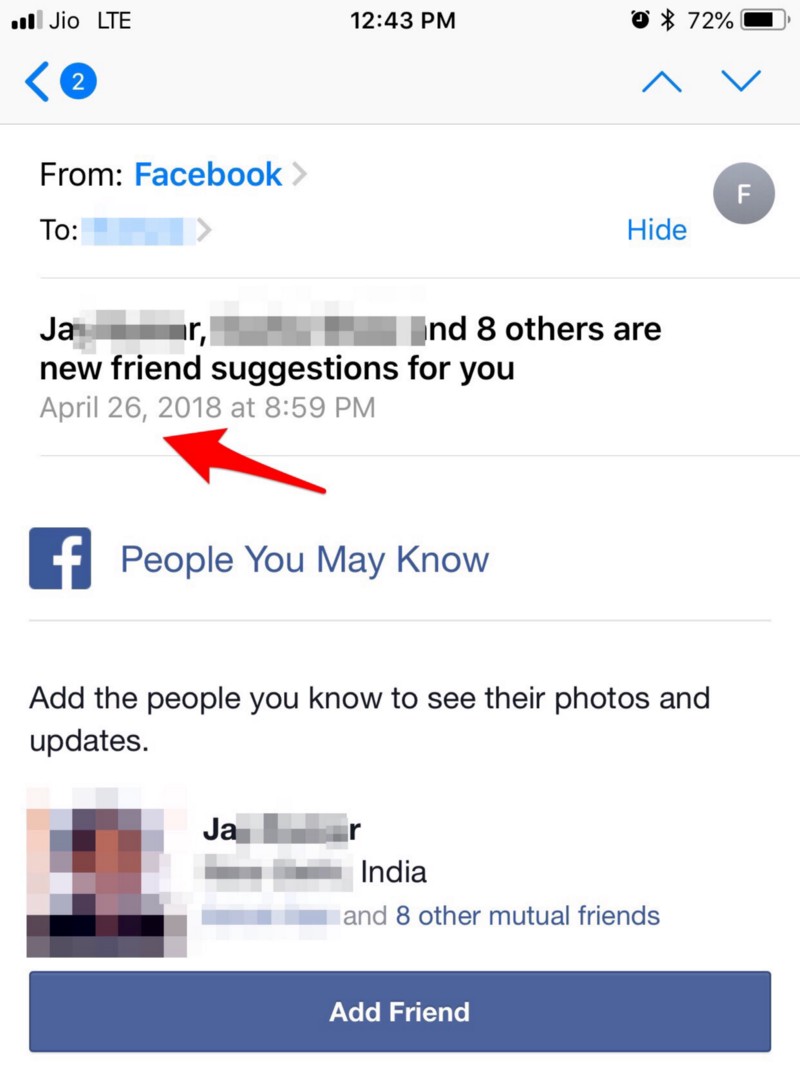
Now here is the thing. Our Facebook accounts and WhatsApp are not linked. Yet amid statements that WhatsApp is encrypted and they can’t read our messages, these creepy encounters always pop up each day.
Was there any other way Facebook could have known that the guy was looking for Jo? (I mean, without reading his encrypted WhatsApp conversation). I myself always sign out of Facebook whenever I use it, as a habit. But Zuckerberg refused to answer the question of whether Facebook tracks you even after you sign out.
WhatsApp already shares data with Facebook, that’s a know fact. But bringing this as a condition to use the app in the security world means that something more fishy is going on behind the scene.
Anyway, on April 30, 2018, my eyes catch the below headline.
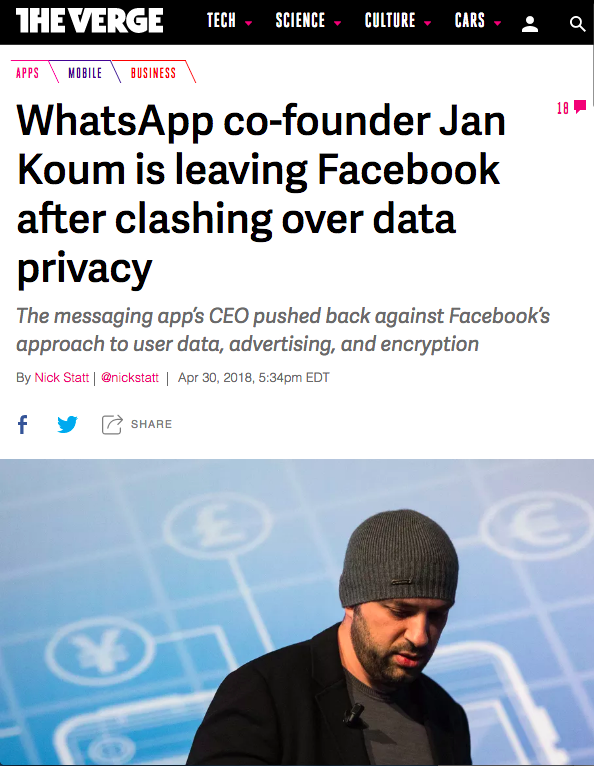
Jan Koum obviously quit the moment he realised that Zuckerberg is not backing off on user data privacy issues after the Cambridge Analytica scandal. On the contrary, Zuckerberg seems to have intensified his efforts to encroach on user data privacy.
I understand where Zuckerberg is coming from. No such thing as a free lunch and all that. I know Facebook needs to generate income in some way as they don’t charge users. In fact, Facebook’s Sheryl Sandberg had mentioned that they had thought about paid subscription at some point. I fully agree with her, and maybe I wouldn’t mind paying a small fee like I do on Medium.
So why did they drop that straightforward path, and stick to the ‘user data’ monetisation route? This despite Cambridge Analytica’s misuse of user data having probably changed the course of history profoundly, and not for the better.
Greed, of course. It always boils down to human greed for more money.
Let’s take WhatsApp. It currently has 1.5 billion users, and used to have a $0.99 annual subscription. Facebook did away with the subscription after acquiring WhatsApp, probably because competitors weren’t charging a fee.
Let’s assume WhatsApp reintroduced the fee, and as a result loses 90% of of their current 1.5 billion users. The big deal would be WhatsApp will not have to compromise user data. The company would still earn $150 million, and be a viable and profitable business, using just that annual subscription model as its source of income.
What makes this possible is WhatsApp is one of the world’s most efficient entities. In 2015, when it already had 900 millions users, WhatsApp only needed 50 engineers to run the enterprise. Even factoring in all other expenses, my guess is there would still be a lot left of that $150 million.
But that’s peanuts for Facebook, and they must have wanted more even at the cost of risking user data. I guess that was the difference of opinion that caused Jan Koum to quit. Brian Acton, the other co-founder of WhatsApp who had left Facebook earlier had already given an indication of his strong feeling on the subject.
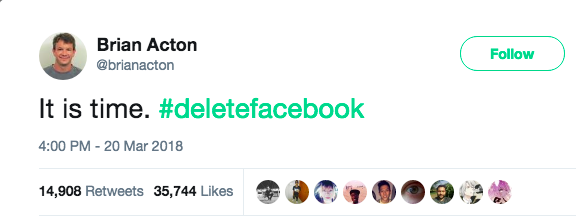
So what’s the way forward? It makes me a little wistful when I see Jan Koum’s thoughts on how they planned to be different when they started WhatsApp.
“When we sat down to start our own thing together three years ago,” Koum wrote, “we wanted to make something that wasn’t just another ad clearing house. We wanted to spend our time building a service people wanted to use because it worked and saved them money and made their lives better in a small way. We knew that we could charge people directly if we could do all those things. We knew we could do what most people aim to do every day: avoid ads.”
The WhatsApp founders may have sold out on their ideals when Facebook offered them $19 billion. But though it was belated, I’m happy their conscience pricked them. They have made it clear to the world that WhatsApp is no longer the WhatsApp of the prior Facebook acquisition days.
Here is a comparison of the most popular, secure messaging apps. Brian Acton has in fact pumped in $50 million into Signal, which does not even keep your phone number, forget data. If Brian Acton is really serious about keeping Signal independent and making it the gold standard for privacy, Signal could become an even bigger phenomenon than WhatsApp. The only reason I’m not on Signal is I had a problem with call drops, probably a teething issue.
Telegram, which is popular in Europe is another great alternative. The fact that it’s also a favourite of ISIS is a downer. But then Putin just banned it in Russia. And if Putin says it’s bad, it has to be damn good!
So there I leave you with one foot in the Telegram boat, and struggling to disentangle my other foot from the WhatsApp swamp.
Or as the poet put it, ‘Rage, rage against the dying of the light.’
